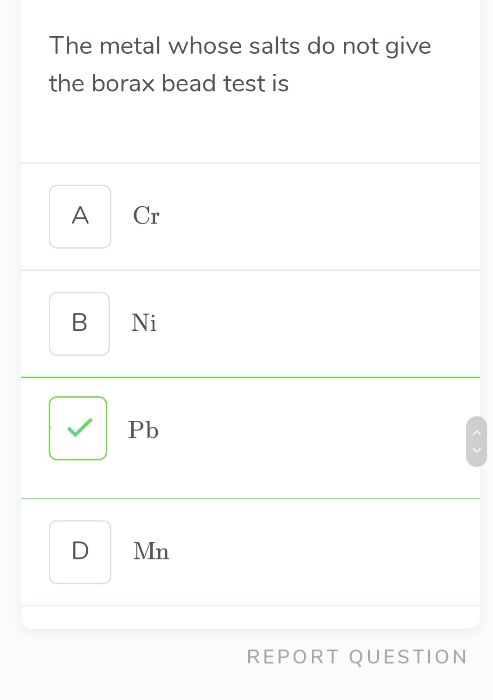CBSE Class 11-science Answered
What is Monobasic Acid?
Asked by shaktidevgun | 02 Dec, 2015, 07:23: PM
A monobasic acid is an acid that has only one hydrogen ion to donate to a base in an acid-base reaction. Hence, a monobasic molecule has only one replaceable hydrogen atom. Examples, HCl and HNO3.
HCl → H+ + Cl-
HNO3 → H+ + NO3-
Answered by Prachi Sawant | 03 Dec, 2015, 09:14: PM
Concept Videos
CBSE 11-science - Chemistry
Asked by mufeedatvp2000 | 18 Apr, 2020, 02:21: PM
CBSE 11-science - Chemistry
Asked by Topperlearning User | 12 Aug, 2014, 03:44: PM
CBSE 11-science - Chemistry
Asked by Topperlearning User | 12 Aug, 2014, 04:04: PM
CBSE 11-science - Chemistry
Asked by Topperlearning User | 12 Aug, 2014, 04:05: PM
CBSE 11-science - Chemistry
Asked by Topperlearning User | 12 Aug, 2014, 04:06: PM
CBSE 11-science - Chemistry
Asked by Topperlearning User | 12 Aug, 2014, 04:08: PM
CBSE 11-science - Chemistry
Asked by Topperlearning User | 12 Aug, 2014, 04:10: PM
CBSE 11-science - Chemistry
Asked by Topperlearning User | 31 May, 2016, 01:04: PM
CBSE 11-science - Chemistry
Asked by Topperlearning User | 12 Aug, 2014, 04:46: PM
CBSE 11-science - Chemistry
Asked by Topperlearning User | 12 Aug, 2014, 05:09: PM





